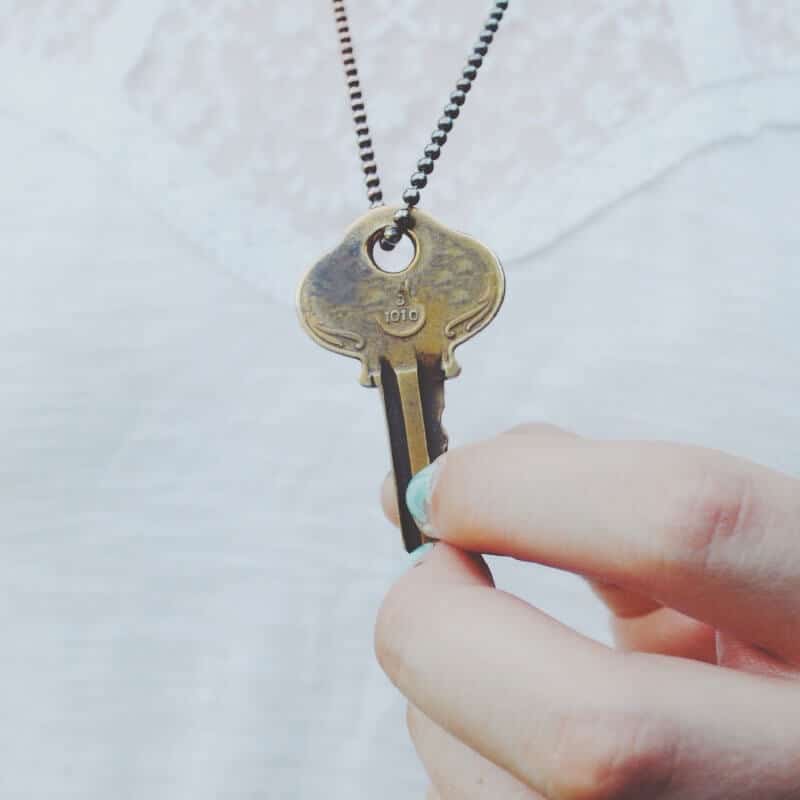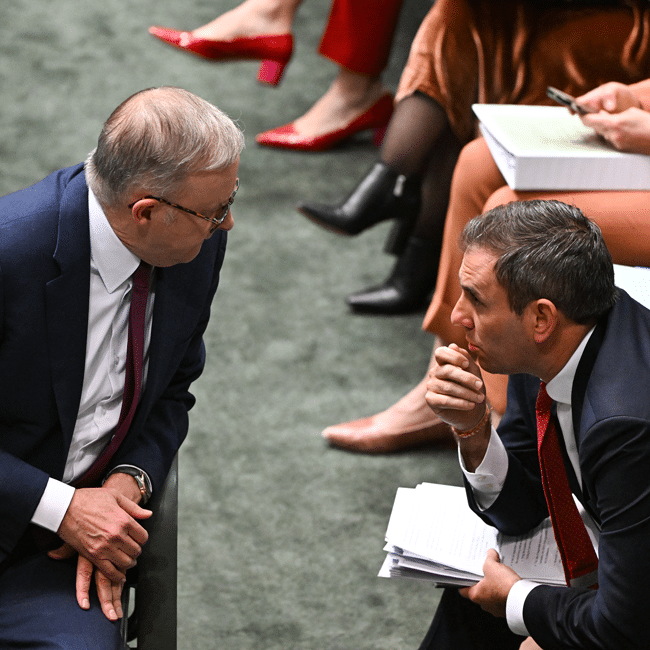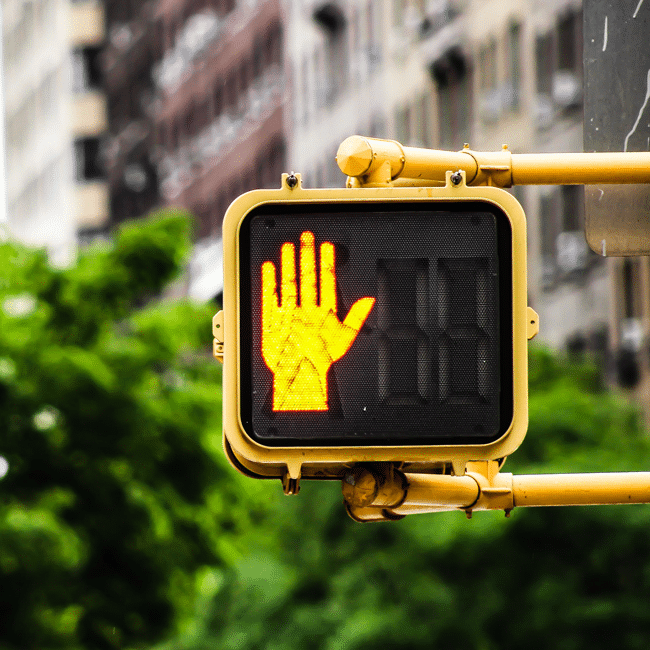Office flings and firings

Office flings and firings
Opinion + AnalysisBusiness + LeadershipHealth + WellbeingRelationships
BY Dennis Gentilin The Ethics Centre 20 JUL 2017
If you heard the phrase “cheaters never prosper” talked about at AFL headquarters, you’d assume they were talking about performance enhancing drugs, salary cap breaches or breaking the rules to win a game.
This week, as AFL CEO Gillon McLachlan announced the resignations of two senior officials, Richard Simkiss and Simon Lethlean, after they admitted to adulterous affairs with junior staff, the phrase took on a whole new meaning.
The reaction to McLachlan’s decision has been mixed. Some have applauded the move as a strong defence of the AFL’s culture and values. Others have suggested the AFL has gone too far. Writing in The Australian Financial Review, Josh Bornstein suggested office affairs that don’t involve “harassment or stalking or bullying” should “not be grounds for loss of employment”.
Particulars of the AFL case aside, this view is misguided. It conflates ethics and the law and demonstrates a lack of appreciation for the important role values and principles play in corporate governance. Just because something is legal doesn’t mean it’s ethical.
Yes, the law should play a role in guiding an organisation when developing an ethical framework. But it is far from sufficient. Arguably, the best test of an organisation’s ethics will arise when they’re operating in areas not covered by the law.
When a power imbalance could potentially cause harm to the more vulnerable party, then we have good reason to question that conduct.
With that said, what should we make of the AFL’s decision? When announcing the resignation of the two senior officials, McLachlan spoke to his organisation’s values. He stated that he would like to lead “a professional organisation based on integrity, respect, care for each other, and responsibility”.
An organisation’s values are affirmed by the actions, choices, and decisions that are made and condoned by its people, especially its most senior leaders. This also was not lost on McLachlan. “I expect that executives are role models and set a standard of behaviour for the rest of the organisation,” he said. “They are judged, as they should be, to a higher standard”.
The response by the Seven West Media board to revelations that their CEO Tim Worner had an adulterous affair with executive assistant Amber Harrison was a little more benign. They engaged a private law firm to undertake an independent investigation into a variety of allegations made by Harrison, including the inappropriate use of company funds and illicit drug use by Worner.
Although the findings of the investigation were not made public, the board concluded there was no evidence supporting the claims of wrongdoing by Worner. Furthermore, they stated he had been disciplined over his “personal and consensual” relationship with Harrison, which it also said was “inappropriate due to his senior position”.
So what are we to make of these seemingly contrasting responses? Should we cast judgement and declare that one organisation is more virtuous than the other?
We must be careful not to instantly assume that an individual who has become involved in an extra-marital affair is less committed to the organisation or its values. Infidelity is not a simple question of character deficiency.
It should be acknowledged that although the two organisations handled the incidents differently, neither condoned the conduct of the leaders involved. When judging the individuals and the organisation’s responses, commentators and the public appear to point to two factors.
The first is the power asymmetry between the people in each of the affairs. This is not unique. Power asymmetries in organisations are inescapable and almost all leaders have at some stage used their power to gain advantage, even if they did so unwittingly. However, when a power imbalance could potentially cause harm to the more vulnerable party then we have good reason to question that conduct.
The second factor inviting people’s judgement is the fact the affairs were adulterous. Understandably, infidelity arouses a range of moral responses. But we must be careful not to instantly assume that an individual who has become involved in an extra-marital affair is less committed to the organisation or its values. Infidelity is not a simple question of character deficiency.
Stories are powerful. After notable incidents like these, they become folklore within organisations.
Whenever a senior executive becomes involved in a regrettable or unsavoury incident similar to these, an employer has no choice but to respond. How they do so is a defining moment for the organisation. Their response (or lack thereof) reveals to us what the organisation really values and how committed it is to those values.
However, judging the appropriateness of the response is difficult. Perhaps the best measure is one we don’t yet have access. Namely, the stories that these events inspire within the organisation.
Stories are powerful. After notable incidents like these, they become folklore within organisations. If they affirm and are aligned to stated values and principles, they can strengthen the organisation’s ethical foundations. If not, people can quickly become cynical, compromising the organisation’s character.
When we look past the salacious gossip surrounding office romances, this is arguably the most important thing to take from these unfortunate incidents. For the sake of the boards at the AFL and Seven West Media, I hope that the stories being told within their organisations are reflective of the values they extol.
Ethics in your inbox.
Get the latest inspiration, intelligence, events & more.
By signing up you agree to our privacy policy
You might be interested in…
Opinion + Analysis
Relationships, Society + Culture
Five dangerous ideas to ponder over the break
Explainer
Business + Leadership, Politics + Human Rights, Relationships
Ethics Explainer: Power
Opinion + Analysis
Health + Wellbeing
HSC exams matter – but not for the reasons you think
Opinion + Analysis
Business + Leadership
How to spot an ototoxic leader
BY Dennis Gentilin
Dennis Gentilin is an Adjunct Fellow at Macquarie University and currently works in Deloitte’s Risk Advisory practice.
BY The Ethics Centre
The Ethics Centre is a not-for-profit organisation developing innovative programs, services and experiences, designed to bring ethics to the centre of professional and personal life.
Ethics Explainer: The Panopticon
The panopticon is a disciplinary concept brought to life in the form of a central observation tower placed within a circle of prison cells.
From the tower, a guard can see every cell and inmate but the inmates can’t see into the tower. Prisoners will never know whether or not they are being watched.
This was introduced by English philosopher Jeremy Bentham. It was a manifestation of his belief that power should be visible and unverifiable. Through this seemingly constant surveillance, Bentham believed all groups of society could be altered. Morals would be reformed, health preserved, industry invigorated, and so on – they were all subject to observation.
Think of the last time you were at work and your boss walked in the room. Did you straighten up and work harder in their presence? Now imagine they were always in the room. They wouldn’t be watching you all the time, but you’d know they were there. This is the power of constant surveillance – and the power of the panopticon.
Foucault on the panopticon
French philosopher, Michel Foucault, was an outspoken critic of the panopticon. He argued the panopticon’s ultimate goal is to induce in the inmates a state of conscious visibility. This assures the automatic functioning of power. To him, this form of incarceration is a “cruel, ingenious cage”.
Foucault also compares this disciplinary observation to a medieval village under quarantine. In order to stamp out the plague, officials must strictly separate everyone and patrol the streets to ensure villagers don’t leave their homes and become sick. If villagers are caught outside, the punishment is death.
In Foucault’s village, constant surveillance – or the idea of constant surveillance – creates regulation in even the smallest details of everyday life. Foucault calls this a “discipline blockade”. Similar to a dungeon where each inmate is sequestered, administered discipline can be absolute in matters of life or death.
On the other hand, Bentham highlights the panopticon’s power as being a “new mode of obtaining mind over mind”. By discarding this isolation within a blockade, the discipline becomes a self-propagating mental mechanism through visibility.
The panopticon today: data
Today, we are more likely to identify the panopticon effect in new technologies than in prison towers. Philosopher and psychologist Shoshanna Zuboff highlights what she calls “surveillance capitalism”. While Foucault argued the “ingenious” panoptic method of surveillance can be used for disciplinary methods, Zuboff suggests it can also be used for marketing.
Concerns over this sort of monitoring date back to the beginning of the rise of personal computers in the late 80s. Zuboff outlined the PC’s role as an “information panopticon” which can monitor the amount of work being completed by an individual.
Today this seems more applicable. Employers can get programs to covertly track keystrokes of staff working from home to make sure they really are putting in their hours. Parents can get software to monitor their children’s mobile phone use. Governments around the world are passing laws so they can collect internet data on people suspected of planning terror attacks. Even public transport cards can be used to monitor physical movements of citizens.
This sort of monitoring and data collection is particularly analogous with the panopticon because it’s a one-way information avenue. When you’re sitting in front of your computer, browsing the web, scrolling down your newsfeed and watching videos, information is being compiled and sent off to your ISP.
In this scenario, the computer is Bentham’s panopticon tower, and you are the subject from which information is being extracted. On the other end of the line, nothing is being communicated, no information divulged. Your online behaviour and actions can always be seen but you never see the observer.
The European Union has responded to this with a new regulation, known as “the right to an explanation”. It states users are entitled to ask for an explanation about how algorithms make decisions. This way, they can challenge the decision made or make an informed choice to opt out.
In these new ways, Bentham’s panopticon continues to operate and influence our society. Lack of transparency and one-way communication is often disconcerting, especially when thought about through a lens of control.
Then again, you might also argue to ensure a society functions, it’s useful to monitor and influence people to do what is deemed good and right.
Ethics in your inbox.
Get the latest inspiration, intelligence, events & more.
By signing up you agree to our privacy policy
You might be interested in…
Opinion + Analysis
Climate + Environment, Politics + Human Rights
Is it time to curb immigration in Australia?
Opinion + Analysis
Politics + Human Rights
We are witnessing just how fragile liberal democracy is – it’s up to us to strengthen its foundations
Opinion + Analysis
Politics + Human Rights
Big Thinker: John Rawls
Opinion + Analysis
Business + Leadership, Politics + Human Rights
No justice, no peace in healing Trump’s America
BY The Ethics Centre
The Ethics Centre is a not-for-profit organisation developing innovative programs, services and experiences, designed to bring ethics to the centre of professional and personal life.
Big Thinker: Michel Foucault
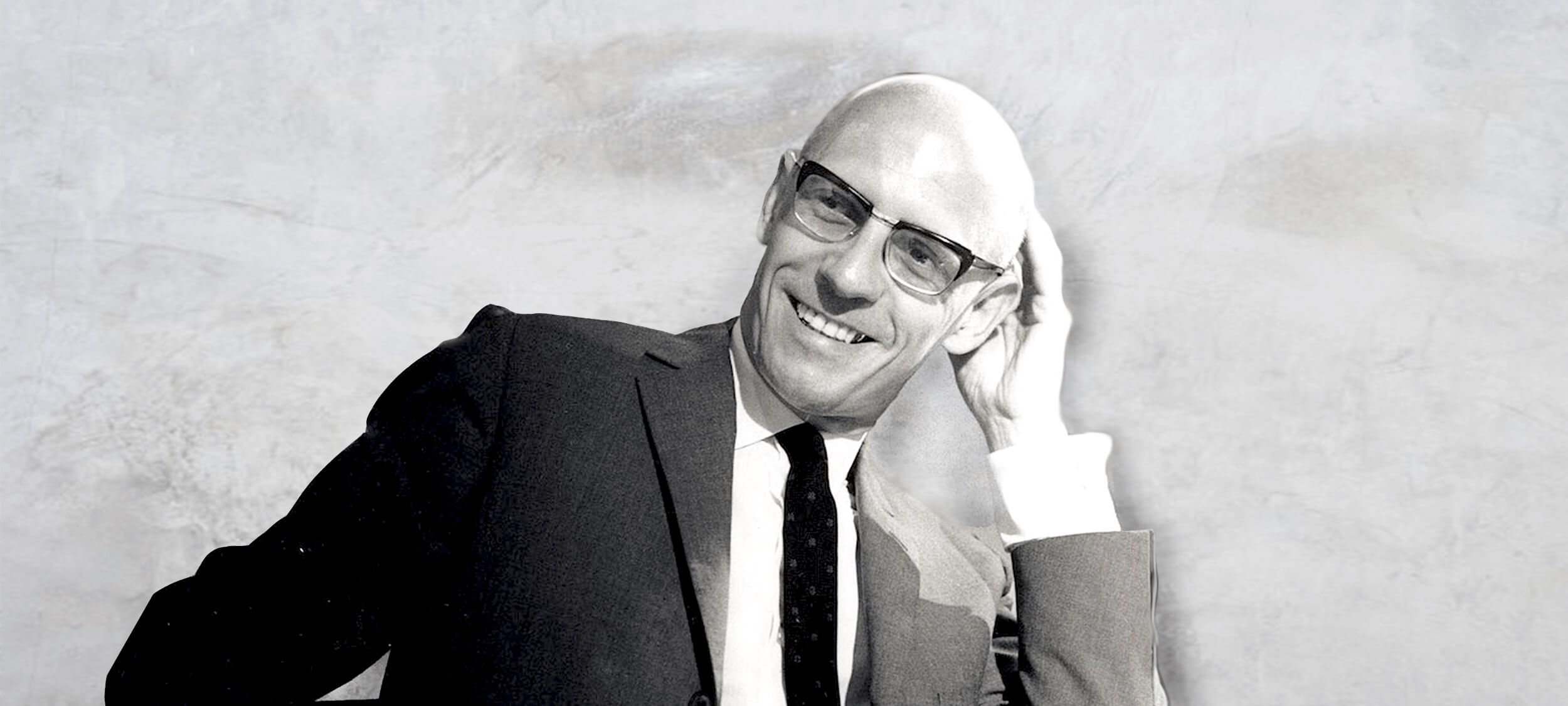
Big Thinker: Michel Foucault
Big thinkerPolitics + Human RightsRelationships
BY The Ethics Centre 13 JUL 2017
Michel Foucault (1926—1984) was a French philosopher, historian and psychologist whose work explored the underlying power relationships in a range of our modern institutions.
Given Foucault’s focus on the ways institutions wield power over us, and that trust in institutions is catastrophically low around the world today, it’s worth having a look at some of the radical Frenchman’s key ideas.
History has no rhyme or reason
At the centre of Foucault’s ideas is the concept of genealogy – the word people usually use when they’re tracing their family history. Foucault thought all of history emerged in the same way a family does – with no sense of reason or purpose.
Just like your existence was the result of a bunch of random people meeting and procreating over generations, he thought our big ideas and social movements were the product of luck and circumstance. He argued what we do is both a product of the popular ways of thinking at the time (which he called rationalities) and the ways in which people talked about those ideas (which he called discourses).
Today Foucault might suggest the dominant rationalities were those of capitalism and technology. And the discourse we use to talk about them might be economics because we think about and debate things in terms their usefulness, efficiency and labour saving. Our judgements about what’s best are filtered through these concepts, which didn’t emerge because of any conscious historical design, but as random accidents.
You might not agree with Foucault. There are people who believe in moral progress and the notion our world is improving as time goes on. However, Foucault’s work still highlights the powerful sense in which certain ideas can become the flavour of the month and dominate the way we interpret the world around us.
For example, if capitalism is a dominant rationality, encouraging us to think of people as economic units of production rather than people in their own right, how might that impact the things we talk about? If Foucault is right, our conversations would probably centre on how to make life more efficient and how to manage the demands of labour with the other aspects of our life. When you consider the amount of time people spend looking for ‘life hacks’ and the ongoing discussion around work/life balance, it seems like he might have been on to something.
But Foucault goes further. It’s not just the things we talk about or the ways we talk about them. It’s the solutions we come up with. They will always reflect the dominant rationality of the time. Unless we’ve done the radical work of dismantling the old systems and changing our thinking, we’ll just get the same results in a different form.
Care is a kind of control
Although many of Foucault’s arguments were new to the philosophical world when he wrote them, they were also reactionary. His work on power was largely a response to the tendency for political philosophers to see power only as the relationship between the sovereign and the citizen – or state and individual. When you read the works of social contract theorists like Thomas Hobbes and Jean Jacques Rousseau, you get the sense politics consists only of people and the government.
Foucault challenged all this. He acknowledged lots of power can be traced back to the sovereign, but not all of it can.
For example, the rise of care experts in different fields like medicine, psychology and criminology creates a different source of power. Here, power doesn’t rest in an ability to control people through violence. It’s in their ability to take a person and examine them. In doing so, the person is objectified and turned into a case (we still read cases in psychiatric and medical journals now). This puts the patients under the power of experts who are masters of the popular medical and social discourses at the time.
What’s more, the expert collects information about the patient’s case. A psychiatrist might know what motivates a person’s behaviour, what their darkest sexual desires are, which medications they are taking and who they spend their personal time with. All of this information is collected in the interests of care but can easily become a tool for control.
A good example of the way non-state groups can be caring in a way that creates great power is in the debate around same sex marriage. Decades ago, LGBTI people were treated as cases because their sexual desires were medicalised and criminalised. This is less common now but experts still debate whether children suffer from being raised by same sex parents. Here, Foucault would likely see power being exercised under the guise of care – political liberties, sexuality and choice in marital spouse are controlled and limited as a way of giving children the best opportunities.
Prison power in inmate self-regulation
Foucault thought prisons were a really good example of the role of care in exercising power and how discourses can shape people’s thinking. They also reveal some other unique things about the nature of power in general and prisons more specifically.
In Discipline and Punish: The Birth of the Prison, Foucault observed a monumental shift in how society dealt with crime. Over a few decades, punishments went from being public, violent spectacles like beheadings, hangings and mutilations to private, clinical and sterile exercises with the prison at the centre of it all. For Foucault, the move represented a shift in discourse. Capital punishment and torture were out, discipline and self-regulation were in.
He saw the new prison, where the inmates are tightly managed and regulated by timetables – meal time, leisure time, work time, lights out time – as being a different form of control. People weren’t in fear of being butchered in the town square anymore. The prison aimed to control behaviour through constant observation. Prisoners who were always watched, regulated their own behaviour.
This model of the prison is best reflected in Jeremy Bentham’s concept of the panopticon. The panopticon was a prison where every cell is visible from a central tower occupied by an unseen guard. The cells are divided by walls so the prisoners can’t engage with each other but they are totally visible from the tower at all times. Bentham thought – and Foucault agreed – that even though the prisoners wouldn’t know if they were being watched at any moment, knowing they could be seen would be enough to control their behaviour. Prisoners were always visible while guards were always unseen.
Foucault believed the panopticon could be recreated as a factory, school, hospital or society. Knowing we’re being watched motivates us to conform our behaviours to what is expected. We don’t want to be caught, judged or punished. The more frequently we are observed, the more likely we are to regulate ourselves. The system intensifies as time goes on.
Exactly what ‘normality’ means will vary depending on the dominant discourse of the time but it will always endeavour to reform prisoners so they are useful to society and to the powerful. That’s why, Foucault argued, prisoners are often forced to do labour. It’s a way of taking something society sees as useless and making it useful.
Even when they’re motivated by care – for example, by the belief that work is good for prisoners and helps them reform – the prison system serves the interests of the powerful in Foucault’s eyes. It will always reflect their needs and play a role in enforcing their vision of how society should be.
You needn’t accept all of Foucault’s views on prisons to see a few useful points in his argument. First, prisons haven’t been around forever. There are other ways of dealing with crime we could use but choose not to. Why do we think prisons are the best? What are the beliefs driving that judgement?
Ethics in your inbox.
Get the latest inspiration, intelligence, events & more.
By signing up you agree to our privacy policy
You might be interested in…
Opinion + Analysis
Health + Wellbeing, Politics + Human Rights
‘Eye in the Sky’ and drone warfare
Opinion + Analysis
Health + Wellbeing, Politics + Human Rights, Relationships
There’s more than lives at stake in managing this pandemic
Opinion + Analysis
Politics + Human Rights, Relationships
A critical thinker’s guide to voting
Opinion + Analysis
Relationships, Society + Culture
In Review: The Festival of Dangerous Ideas 2018
BY The Ethics Centre
The Ethics Centre is a not-for-profit organisation developing innovative programs, services and experiences, designed to bring ethics to the centre of professional and personal life.
Ethics Explainer: Ownership

Ethics Explainer: Ownership
ExplainerBusiness + LeadershipClimate + Environment
BY The Ethics Centre 5 JUL 2017
Where lying is the abuse of truth and harm the abuse of dignity, philosophers associate theft with the abuse of ownership.
We tend to take property for granted. People own things, share things or have access to things that don’t belong to them. We rarely stop to think how we come to own things, whether there are some things we shouldn’t be allowed to own or whether our ideas of property and ownership are adequate for everybody.
This is where English philosopher John Locke comes in.
Locke believed that in a state of nature – before a government, human made laws or an established economic system – natural resources were shared by everyone. Similar to a shared cattle-grazing ground called the Commons, these were not privately owned and so accessible to all.
But this didn’t last forever. He believed common property naturally transformed into private property through ownership. Locke had some ideas as to how this should be done, and came up with three conditions:
- First, limit what you take from the Commons so everyone else can enjoy the shared resource.
- Second, take only what you can use.
- Third, that you can only own something if you’ve worked and exerted labour on it. (This is his labour theory of property).
Though his ideas form the bedrock of modern private property ownership, they come with their fair share of critics.
Ancient Greek philosopher Plato thought collective property was a more appropriate way to unite people behind shared goals. He thought it was better for everyone to celebrate or grieve together than have some people happy and others sad at the way events differently affect their privately-owned resources.
Others wonder if it is complex enough for the modern world, where the resource gap between rich companies and poor communities widens. Does this satisfy Locke’s criteria of leaving the Commons “enough and as good”? He might have a criticism of his own about our current property laws – that they’ve gone beyond what our natural rights allow.
Some critics also say his theory denies the cultivation techniques and land ownership of groups like the Native Americans or the Aboriginal Australians. While Locke’s work serves as a useful explanation of Western conceptions of property ownership, we should wonder if it is as natural as he thought it was.
On the other hand, it’s likely Locke simply had no idea of the way in which Indigenous people have managed the landscape over millennia. Had he understood this, then he may have recognised the way Indigenous groups use and relate to land as an example of property ownership.
Karl Marx, and the closely associated philosophies of socialism and communism, prioritise common or collective property over private forms of property. He thought humanity should – and does – move toward co-operative work and shared ownership of resources.
However, Marx’s work on alienation may be a common ground. This is when people’s work becomes meaningless because they can’t afford to buy the things they’re working to make. They can never see or enjoy the fruits of their labour – nor can they own them. Considering the importance Locke places on labour and ownership, he may have had a couple of things to say about that.
Ethics in your inbox.
Get the latest inspiration, intelligence, events & more.
By signing up you agree to our privacy policy
You might be interested in…
Opinion + Analysis
Business + Leadership
Dame Julia Cleverdon on social responsibility
Opinion + Analysis
Business + Leadership
Shadow values: What really lies beneath?
Opinion + Analysis
Politics + Human Rights, Business + Leadership
Political promises and the problem of ‘dirty hands’
Opinion + Analysis
Business + Leadership
Capitalism is global, but is it ethical?
BY The Ethics Centre
The Ethics Centre is a not-for-profit organisation developing innovative programs, services and experiences, designed to bring ethics to the centre of professional and personal life.
James C. Hathaway on the refugee convention
James C. Hathaway on the refugee convention
WATCHPolitics + Human Rights
BY James C. Hathaway The Ethics Centre 22 JUN 2017
To mark the 2017 anniversary of the UN’s World Refugee Day and Australia’s Refugee Week, we spoke to Professor James Hathaway, the world’s leading expert on refugee law.
Watch this video for his in-depth analysis of the Refugee Convention, an agreement made in 1951 in response to World War II. Is it still relevant? What needs to change? He doesn’t hold back!
James’ work is used by courts all over the world when interpreting the Refugee Convention and applying it to decisions. His many publications include the seminal book co-authored with Australia’s Michelle Foster, The Law of Refugee Status.
Follow James Hathaway on Twitter here: @JC_Hathaway
Ethics in your inbox.
Get the latest inspiration, intelligence, events & more.
By signing up you agree to our privacy policy
You might be interested in…
Opinion + Analysis
Politics + Human Rights, Society + Culture
Why sometimes the right thing to do is nothing at all
Explainer
Politics + Human Rights, Relationships
Ethics Explainer: Autonomy
Opinion + Analysis
Politics + Human Rights
Lessons from Los Angeles: Ethics in a declining democracy
Opinion + Analysis
Politics + Human Rights, Relationships
To deal with this crisis, we need to talk about ethics, not economics
BY James C. Hathaway
James Hathaway is an American-Canadian scholar of international refugee law and related aspects of human rights and public international law. His work is regularly cited by the most senior courts of the common law world, and has played a pivotal role in the evolution of refugee studies scholarship.
BY The Ethics Centre
The Ethics Centre is a not-for-profit organisation developing innovative programs, services and experiences, designed to bring ethics to the centre of professional and personal life.
Ethical dilemma: how important is the truth?

Ethical dilemma: how important is the truth?
Opinion + AnalysisRelationships
BY Matthew Beard The Ethics Centre 16 JUN 2017
Someone I know has just told me that the wife of a very good friend had an affair a few years ago.
The thing is that they seem very happy together, as do their children, and they are a solid family unit. The source of information is good, in that I can trust the person telling me, but he heard from someone else rather than ‘knowing’ for himself. What to do now that I have this information? Do I follow the lead to the original source to find out if it’s true? Do I confront my friend’s wife? Tell my friend? Forget about it altogether? If it isn’t true, I risk looking like an idiot; if it is, I risk breaking up a marriage and family. How important is the truth?
It’s tempting to say “this is none of your business – this is a matter for the person who had the affair to own up to”, but I’m not convinced by that. By saying nothing, you’re still making a decision to withhold potentially life-changing information from someone.
Let’s say that if your friend knew of the affair, they’d leave their wife, decide to stop sleeping with them or whatever. By withholding that information, you’re preventing them from making a choice they would otherwise make, which they have the right to make and which might be in their best interests. That’s a serious responsibility to take on, so you’d need to have pretty good reasons to justify saying nothing.
One such reason might be uncertainty. You say you’ve had this information given to you by a trustworthy source, but your source got that information as gossip. So, the question isn’t ‘can I trust my source?’; it’s ‘can I trust gossip?’
Your source might have good reasons to trust that gossip – you should ask what they are. If there aren’t any special circumstances, it’s hard to see on what basis you’d believe the allegations.
Now you’re wondering whether you need to investigate further. You’ve been told something but it’s an unreliable source – should you go out and find a more reliable source to make a decision one way or the other?
If you do decide to pursue the source further, it’s important you recognise exactly what that means. You’ve been told something is true, realised the source is unreliable and then decided it’s your job to try to find another source that proves it to be true. That’s not an impartial way to make the decision.
Most people would think if you only have one source of evidence for a claim and that evidence is bad, then you no longer have any reason to believe the claim. To keep looking for new evidence to prove the claim true is what psychologists call ‘confirmation bias’.
Still, if you have a close enough relationship to your friend you might be willing to fly in the face of reason and leave no stone unturned. But it would be wrong to say you’re obliged to investigate further: there’s just not enough evidence for that.
This article originally appeared in New Philosopher issue #17 on Communication.
Ethics in your inbox.
Get the latest inspiration, intelligence, events & more.
By signing up you agree to our privacy policy
You might be interested in…
Opinion + Analysis
Business + Leadership, Health + Wellbeing, Relationships
Ending workplace bullying demands courage
Opinion + Analysis
Relationships
In defence of platonic romance
Opinion + Analysis
Climate + Environment, Relationships, Science + Technology
From NEG to Finkel and the Paris Accord – what’s what in the energy debate
Opinion + Analysis
Relationships
Praying for Paris doesn’t make you racist
BY Matthew Beard
Matt is a moral philosopher with a background in applied and military ethics. In 2016, Matt won the Australasian Association of Philosophy prize for media engagement. Formerly a fellow at The Ethics Centre, Matt is currently host on ABC’s Short & Curly podcast and the Vincent Fairfax Fellowship Program Director.
BY The Ethics Centre
The Ethics Centre is a not-for-profit organisation developing innovative programs, services and experiences, designed to bring ethics to the centre of professional and personal life.
4 questions for an ethicist

4 questions for an ethicist
Opinion + AnalysisHealth + Wellbeing
BY John Neil The Ethics Centre 16 JUN 2017
Though not as common as GPs, therapists, or personal trainers, ethicists still have a lot to say about how to live a good life. Here are four of the common questions they get asked.
1. There are so many conflicting versions of ethics out there – legal, social, religious. Which should I listen to?
With all these voices vying for our attention it can be difficult to know who to listen to. An important starting point with ethics is to untangle the nature of these conflicting voices to better be able to hear our own.
Our beliefs and values are influenced by our upbringing, community, professions, and for many people, their faith. It’s useful to think of these voices – social customs, the law and religion – as ‘morality’ rather than ethics.
Morality is a set of deeply held and widely shared norms and rules within a community. Like ethics, morality provides us with opinions, rules, laws, and principles to guide our choices and actions. But unlike ethics, morality can be followed unthinkingly and without asking questions.
Ethics is about reflecting on who we are, what we value, and how we want to live in a world where many others may not share the same values and principles as us.
What makes ethics both timely and timeless is it arises in any moment when we find ourselves faced with the question of what is right. This question is both a philosophical and practical one. Philosophically, it involves exploring the nature of concepts like truth, wisdom, and belief and providing a justification for right and good actions.
On a practical level, it is a question we find ourselves asking every day. Whether it’s the big ethical issues – abortion, capital punishment, immigration – or everyday ethical questions – whether to tell the truth to a friend when it may hurt their feelings, or being asked to provide a reference for a close colleague who isn’t qualified for the job – ethical questions are inescapable parts of being human.
Ethics does not rely on history, tradition, religion, or the law to solely to define for us what is good or right. Ethics is about reflecting on who we are, what we care about, and how we want to live in a world where many others may not share the same values and principles as us.
2. Isn’t ethics just a matter of opinion? If there’s no way to tell who is right and who is wrong, isn’t my opinion as good as anyone’s?
In the 1990s Mike Godwin famously argued when it comes to online arguments, the longer and more heated a debate gets, the more likely somebody will bring up the Nazis in an attempt to close it down.
When it comes to discussions of ethics there is an inverse law which anyone who has taught an ethics class will have experienced. The shorter the conversation about ethics, the greater the likelihood somebody will claim, “Ethics is just personal opinion”.
When the stakes are high, it becomes abundantly clear that we want to hold others to a similar standard of what we think matters.
This view implies ethics is subjective. What follows from this is there are no better or worse opinions on ethics.
However, it would be hard to find someone say in response to being robbed, “The thief had their own values and I have mine, they are entitled to their view, so I won’t pursue this further”. When the stakes are high, it becomes abundantly clear we want to hold others to a similar standard of what we think matters.
We will inevitably reach a point in any discussion of ethics where people will strongly express a fundamental moral belief – for example, it’s wrong to steal, to lie or to harm others. These opinions are the beginning of a common, rational basis for discussions about what we should or shouldn’t do.
And when those discussions become heated, let’s try and leave Hitler out of it.
3. I’m a good person, why do I need ethics?
Ethics helps good people become better people.
Being a good person doesn’t necessarily mean you will always know what’s right. Good people disagree with each other about what is right all the time. And good people often don’t know what to do in difficult situations, especially when these situations involve ethical dilemmas.
We all have the tendency to act unethically given the ‘right’ conditions. Fear, guilt, stress, and anxiety have been shown to be significant factors that prevent us from acting ethically.
Good people make bad choices. Despite the widespread view that bad things happen due to a small percentage of so called ‘evil people’ intentionally doing the wrong thing, the reality is that all of us can make poor decisions.
We all have the tendency to act unethically given the ‘right’ conditions. Fear, guilt, stress and anxiety have been shown to be significant factors that prevent us acting ethically.
Food has been shown to directly influence the quality of decisions made by judges. Other studies have shown that even innocuous influences can have a disproportionate effect on our decisions. For example, smells affect the likelihood a person will help other people.
Ethics is not only about being aware of our values and principles. It is also about being alive to our limited view of the world and striving to expand our horizons by trying to better see the world as it really is.
4. People only do ethics when it makes them look good. Why would anyone put ethics above self-interest?
One argument often heard in philosophy and psychology is that everything we do, from the compassionate to the heroic, is ultimately done for our own benefit. When we boil it down, we only save lives, donate to charity or care for a friend because these things make us feel good or benefit us.
However, despite being a widely held view it is only half the story – and not even the most interesting part of the story. While human beings are undoubtedly self-interested there is a wealth of evidence that shows human beings are hard wired to care for others, including total strangers.
Research has shown the existence of ‘mirror neurons’ in our brains that naturally respond to other people’s feelings.
Ethics is rooted in this fundamental human capacity to be connected to others. It provides a rational foundation for this connection. This is the foundation of empathy. It’s an intrinsic part of what makes us human.
Ethics in your inbox.
Get the latest inspiration, intelligence, events & more.
By signing up you agree to our privacy policy
You might be interested in…
Opinion + Analysis
Health + Wellbeing
The moral life is more than carrots and sticks
Opinion + Analysis
Health + Wellbeing, Relationships
The truths COVID revealed about consumerism
Opinion + Analysis
Health + Wellbeing
Your kid’s favourite ethics podcast drops a new season to start 2021 right
Opinion + Analysis
Health + Wellbeing, Relationships
Living well or comfortably waiting to die?
BY John Neil
As Director of Education and Innovation at The Ethics Centre, John collaborates closely with a talented team of specialists and subject matter experts to shape the tools, frameworks, and programs that drive our work forward. He brings a rich and varied background as a consultant, lecturer, and researcher, with expertise spanning ethics, cultural studies, sustainability, and innovation. This multidisciplinary perspective allows him to introduce fresh, thought-provoking approaches that energise and inspire our initiatives. John has partnered with some of Australia’s largest organisations across diverse industries, to place ethics at the heart of organisational life. His work focuses on education, cultural alignment, and leadership development to foster meaningful and lasting impact.
BY The Ethics Centre
The Ethics Centre is a not-for-profit organisation developing innovative programs, services and experiences, designed to bring ethics to the centre of professional and personal life.
Ethics Explainer: Rights and Responsibilities

Ethics Explainer: Rights and Responsibilities
ExplainerPolitics + Human Rights
BY The Ethics Centre 2 JUN 2017
When you have a right either to do or not do something, it means you are entitled to do it or not.
Rights are always about relationships. If you were the only person in existence, rights wouldn’t be relevant at all. This is why rights always correspond to responsibilities. My rights will limit the ways you can and can’t behave towards me.
Legal philosopher Wesley Hohfeld distinguished between two sets of rights and responsibilities. First, there are claims and duties. Your right to life is attached to everyone else’s duty not to kill you. You can’t have one without the other.
Second, there are liberties and no-claims. If I’m at liberty to raise my children as I see fit it’s because there’s no duty stopping me – nobody can make a claim to influence my actions here. If we have no claim over other people’s liberties, our only duty is not to interfere with their behaviour.
But your liberty disappears as soon as someone has a claim against you. For example, you’re at liberty to move freely until someone else has a claim to private property. Then you have a duty not to trespass on their land.
It’s useful to add into the mix the distinction between positive and negative rights. If you have a positive right, it creates a duty for someone to give you something – like an education. If you have a negative right, it means others have a duty not to treat you in some way – like assaulting you.
All this might seem like tedious academic stuff but it has real world consequences. If there’s a positive right to free speech, people need to be given opportunities to speak out. For example, they might need access to a radio program so they can be heard.
By contrast, if it’s a negative claim right, nobody can censor anyone else’s speech. And if free speech is a liberty, your right to use it is subject to the claims of other. So if other people claim the right not to be offended, for example, you may not be able to speak up.
There are a few reasons why rights are a useful concept in ethics.
First, they are easy to enforce through legal systems. Once we know what rights and duties people have, we can enshrine them in law.
Second, rights and duties protect what we see as most important when we can’t trust everyone will act well all the time. In our imperfect world, rights provide a strong language to influence people’s behaviour.
Finally, rights capture the central ethical concepts of dignity and respect for persons. As the philosopher Joel Feinberg writes:
Having rights enables us to “stand up like men,” to look others in the eye, and to feel in some fundamental way the equal of anyone. To think of oneself as the holder of rights is not to be unduly but properly proud, to have that minimal self-respect that is necessary to be worthy of the love and esteem of others.
Indeed, respect for persons […] may simply be respect for their rights, so that there cannot be the one without the other; and what is called “human dignity” may simply by the recognizable capacity to assert claims.
Feinberg suggests rights are a manifestation of who we are as human beings. They reflect our dignity, autonomy and our equal ethical value. There are other ways to give voice to these things, but in highly individualistic cultures, what philosophers call “rights talk” resonates for two reasons: individual freedom and equality.
Ethics in your inbox.
Get the latest inspiration, intelligence, events & more.
By signing up you agree to our privacy policy
You might be interested in…
Opinion + Analysis
Business + Leadership, Politics + Human Rights
Do diversity initiatives undermine merit?
Opinion + Analysis
Politics + Human Rights
Unrealistic: The ethics of Trump’s foreign policy
Opinion + Analysis
Politics + Human Rights, Relationships
Would you kill baby Hitler?
Opinion + Analysis
Politics + Human Rights
Why Anzac Day’s soft power is so important to social cohesion
BY The Ethics Centre
The Ethics Centre is a not-for-profit organisation developing innovative programs, services and experiences, designed to bring ethics to the centre of professional and personal life.
Big Thinker: Simone de Beauvoir
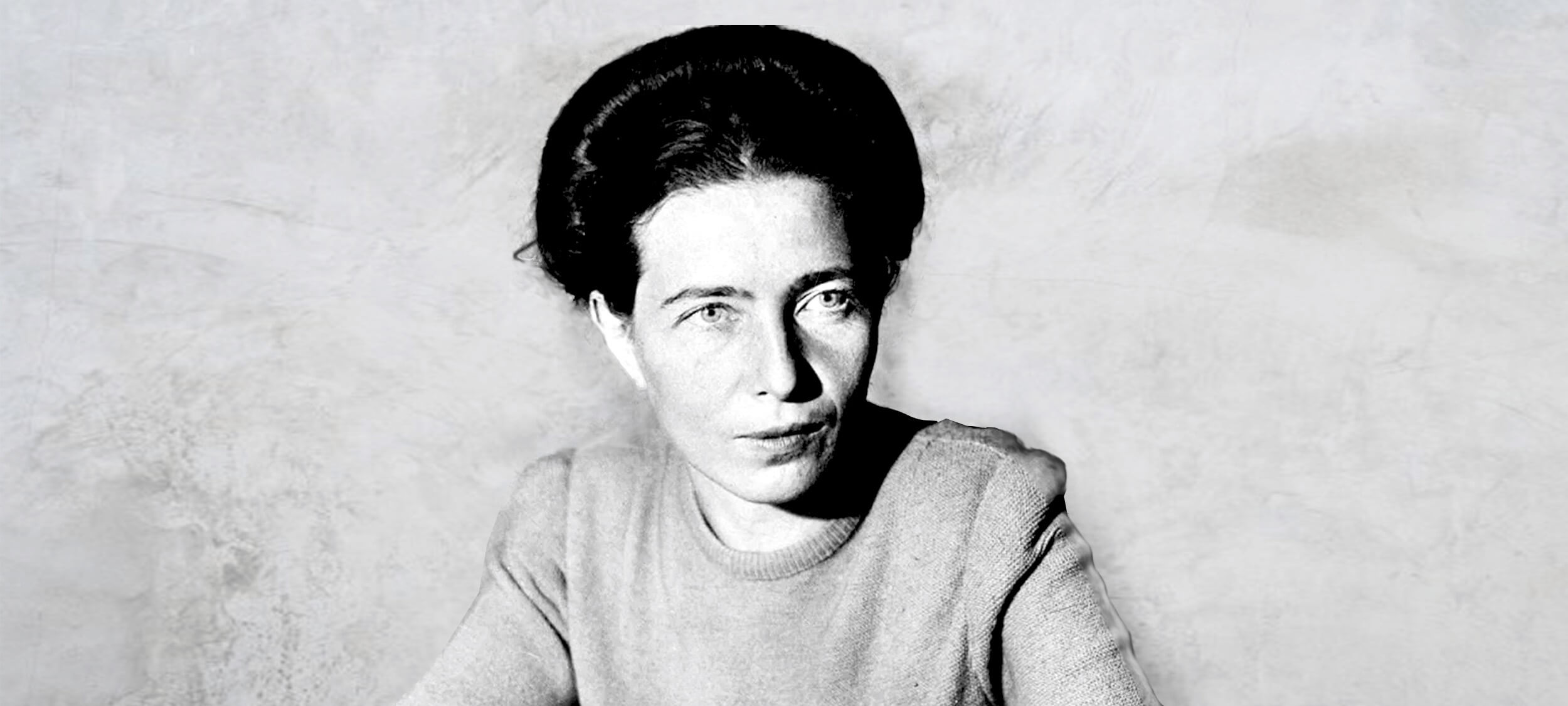
Big Thinker: Simone de Beauvoir
Big thinkerRelationshipsSociety + Culture
BY The Ethics Centre 18 MAY 2017
Simone de Beauvoir (1908—1986) was a French author, feminist and existential philosopher. Her unconventional life was a working experiment of her ideas – that one creates the meaning of life through free and authentic choices.
In a cruel confirmation of the sexism she criticised, Beauvoir’s work is often seen as less important than that of her partner, Jean Paul Sartre. Given the conclusions she drew were hugely influential, let’s revisit her ideas for a refresher course.
Women aren’t born, they’re made
Beauvoir’s most famous quote comes from her best-known work, The Second Sex: “One is not born, but rather becomes, a woman”.
By this she means there is no essential definition of womanhood. Women can be anything, but social norms work hard to fit them into a particular kind of femininity. These social norms are patriarchal and born out of the male gaze.
The Second Sex argues that it’s men who define what women should be. Because men have always held more power in society, the world looks the way men want it to look. An obvious example is female beauty.
Beauvoir holds that through norms around removing body hair, makeup and uncomfortable fashion, women restrict their freedom to serve the male gaze.
This objectification of women goes deeper, until they aren’t seen as fully human. Men are seen as active, free agents who are in control of their lives. Women are described passively. They need to be protected, controlled or rescued.
It’s true, she thinks, that women aren’t always seen as passive objects, but this only happens when they impersonate men.
“Man is defined as a human being and woman as a female – whenever she behaves as a human being she is said to imitate the male.”
For Beauvoir, women are always cast into the role of the Other. Who they are matters less than who they’re not: men. This is an enormous problem for the existentialist, for whom the purpose of life is to freely choose who they want to be.
Everyone has to create themselves
As an existentialist, Beauvoir believed people need to live authentically. They need to choose for themselves who they want to be and how they want to live. The more pressure society – and other people – place on you, the harder it is to make an authentic choice.
Existentialists believe no matter the amount of external pressure, it is still possible to make a free choice about who we want to be. They say we can never lose our freedom, though a range of forces can make it harder to exercise. Plus, some people choose to hide from their freedom in various ways.
Some of us hide from our freedom by living in bad faith, embracing the definitions other people put on us. Men are free to reject the male gaze and stop imposing their desires onto women but many don’t. It’s easier, Beauvoir thinks, to accept the social norms we’re born into. To live freely and authentically is the greater struggle.
The importance of freedom led Beauvoir to suggest liberated women should not try to force other women to live their lives in a similar way. If a small group of women choose to reject the male gaze and define womanhood in their own way, that’s great.
But respecting other people means allowing them to live freely. If other women don’t want to join the feminist mission, Beauvoir believed they should not be forced or pressured to do so. This is important advice in an age where online shaming is often used to force people to conform to popular social views.
We’re as ageist as we are sexist
Later in life, Beauvoir applied her arguments about women in The Second Sex to the plight of the elderly. In The Coming of Age, she argued that we make assumptions and generalisations about the elderly and ageing, just like we do about women.
To her, it is as wrong to ‘other’ women because they are different from men, as it is to ‘other’ the elderly because they are different from the young. Feminist philosopher Deborah Bergoffen explains Beauvoir’s view: “As we age, the body is transformed from an instrument that engages the world into a hindrance that makes our access to the world difficult”.
Like women in The Second Sex, the elderly remain free to define themselves. They can reject the idea that physical decline makes them unable to function as authentic human beings.
In The Coming of Age, we see some of the foundations of today’s discussions about ageism and ableism. Beauvoir urges us to come back to a simple truth: the facts of our existence – what our bodies are like, for example – don’t have to define us.
More importantly, it’s wrong to define other people only by the facts of their existence.
Ethics in your inbox.
Get the latest inspiration, intelligence, events & more.
By signing up you agree to our privacy policy
You might be interested in…
Opinion + Analysis
Politics + Human Rights, Relationships
To deal with this crisis, we need to talk about ethics, not economics
Opinion + Analysis
Relationships, Science + Technology, Society + Culture
5 things we learnt from The Festival of Dangerous Ideas 2022
Opinion + Analysis
Relationships
Violent porn denies women’s human rights
Opinion + Analysis
Politics + Human Rights, Relationships
What’s the use in trying?
BY The Ethics Centre
The Ethics Centre is a not-for-profit organisation developing innovative programs, services and experiences, designed to bring ethics to the centre of professional and personal life.
Tough love makes welfare and drug dependency worse

Tough love makes welfare and drug dependency worse
Opinion + AnalysisHealth + Wellbeing
BY Nicole Lee The Ethics Centre 17 MAY 2017
“Look, if somebody has got an addiction to drugs and you love them, what do you want to do? You want them to get off it, don’t you?” Malcolm Turnbull said recently in defence of the Coalition’s new plan to conduct drug tests on welfare recipients. “This is a policy that is based on love”.
The policy warrants some analysis – starting with the methodology.
The government plans to conduct drug tests on 5000 welfare recipients in three undisclosed locations as a pilot program – with these locations selected by testing waste water. Just so we’re clear on this, they’ll be testing sewage water for the presence of drugs. So if, for example, Toorak registers a high reading for drugs, welfare recipients in that suburb may be nominated to participate in the pilot program.
It’s not clear whether the government plans to test the sewage pipes of every suburb of Australia, or just the ones with a lot of welfare recipients.
Once this messy, smelly, but undeniably fascinating work has been completed, the policy will operate on a “three strikes” approach. The first positive drug test will place welfare recipients on a cashless debit card that cannot be used for alcohol, gambling or cash withdrawals. A second strike gets you a referral to a doctor for treatment. After three strikes, your welfare payments are cancelled for a month.
Unfortunately, sanctions and punishment won’t help people manage their drug use. Love – even tough love – isn’t going to get us anywhere near a solution. Here’s why.
Drug use and drug dependence aren’t the same thing
Not everyone that takes drugs is dependent on them and not everyone needs treatment. All the drugs on the proposed testing list are used recreationally and the majority of people who use them are not dependent.
Only a relatively small proportion of current users – around 10% – are dependent on alcohol or other drugs. For example, very few people who use ecstasy ever become dependent on it. Only 1% of people seeking help from alcohol and other drug services name it as their primary drug of concern. Seventy percent of people who have used methamphetamine in the last year have used less than 12 times. Around 15 percent are dependent on it.
This means the government is potentially wasting large amounts of money drug testing and sanctioning people who only use occasionally.
It will do more harm than good
Whatever you believe about the morality of drug use, the reality is that just restricting income and expenditure will not stop people using drugs. It’s just not that simple. And it creates a number of potential unintended consequences.
Even if we assume that everyone who uses drugs needs treatment (which is not the case), you can’t just say “Stop it!” and hope that works. Dependence is a chronic and relapsing condition. Anybody who has been a regular smoker or has participated in Dry July probably has some experience of how hard it is to abstain from their drug of choice, even for a short time.
Even if it could stop people using, this proposal doesn’t address any of the broader social risk factors that maintain drug use and trigger relapse.
The idea that taking away money to buy drugs will magically stop people using them is a gross oversimplification of why people use drugs, what happens when they are dependent on them, and why they quit. Theft and other crime may increase as people denied payments find other ways to buy drugs.
Even if it could stop people using, this proposal doesn’t address any of the broader social-risk factors that maintain drug use and trigger relapse: mental health issues, disrupted connection with community, lack of employment and education, housing instability, and poverty.
Worse still, the policy may discourage people who are dependent on drugs from seeking help for fear of losing their benefits.
Drug testing doesn’t reduce drug use or its consequent harms. But what it can do is shift drug use to other (often more dangerous) drugs that are not part of the testing regime. People who use cannabis may switch to more dangerous synthetic cannabinoids and those using ecstasy or methamphetamine may switch to other more harmful stimulants.
It threatens civil liberties
In a workplace context, court rulings clearly indicate that drug testing is only justified on clear health and safety grounds. This is because there is a balance required with privacy and consent. Greg Barnes from the Australian Lawyers Alliance has already highlighted the potential conflict in gaining consent of a vulnerable individual under duress of sanctions.
The measure targets the most vulnerable, poorest, and youngest Australians, potentially further marginalising and stigmatising them. We know that when people feel stigmatised they are less likely to seek the help they need.
Punitive measures just don’t work. They reflect a deep lack of understanding about drug use, its effects and of what works to address drug-related problems.
It creates a “deserving” and “undeserving” dichotomy based on private moral judgements about whether it is right or wrong to use drugs.
It assumes, without evidence, that drug use is a major cause of welfare dependence and a barrier to finding work. Research from the US suggests neither is true.
We need evidence-based policy
It’s difficult to see what the government will achieve from this paternalistic measure. Politically, it may appease the far right’s “tough on drugs” rhetoric – but as a piece of policy, it is unlikely to achieve what it hopes to.
The experience from the US is that punitive measures just don’t work. They reflect a deep lack of understanding about drug use, its effects and of what works to address drug-related problems.
This is not going to reduce drug use or harms. It has the potential to increase crime, infringes on civil liberties and it is going to cost a lot of money that would be better spent in harm reduction and drug treatment.
If the government really wants to put this kind of money into reducing drug use among those on welfare, providing more money to the underfunded treatment sector would be a better place to start.
According to the Drug Policy Monitoring Program at UNSW, drug treatment is funded at less than half the amount the community needs. Yet for every dollar we put into treatment we save $7 in health and social costs. If we want to save money in the budget, it seems like a no-brainer.
Ethics in your inbox.
Get the latest inspiration, intelligence, events & more.
By signing up you agree to our privacy policy
You might be interested in…
Opinion + Analysis
Health + Wellbeing
Maggie Beer: Good food can drive better aged care
Opinion + Analysis
Health + Wellbeing, Politics + Human Rights, Relationships
CoronaVirus reveals our sinophobic underbelly
Opinion + Analysis
Health + Wellbeing, Relationships
Confirmation bias: ignoring the facts we don’t fancy
Opinion + Analysis
Politics + Human Rights, Health + Wellbeing, Society + Culture














